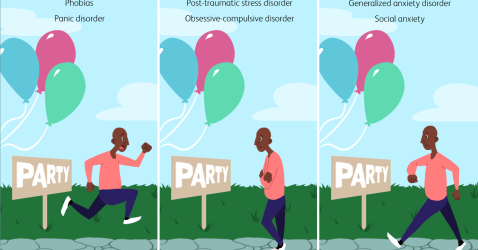Can Laughter Yoga Or Laughter Clubs Be Effective In Reducing Stress?
Imagine having a fun and laughter-filled therapy session that not only helps you relax but also reduces your stress levels. Sounds too good to be true, right? Well, think again! Laughter yoga and laughter clubs have gained popularity in recent years as effective stress relief practices. Combining the healing power of laughter with the benefits of yoga and group dynamics, these unconventional approaches aim to bring joy and happiness to people’s lives. But do they actually work? Can laughter truly be the best medicine when it comes to stress reduction? Let’s explore the potential of laughter yoga and laughter clubs in alleviating stress and embracing a more joyful outlook on life.
Factors contributing to stress
Work pressure
Work pressure is a major source of stress for many individuals. The demanding nature of work, tight deadlines, long hours, and high expectations can all contribute to feelings of stress. The pressure to constantly perform, meet targets, and excel in your career can take a toll on your mental and physical well-being.
Personal problems
Personal problems, such as relationship issues, family conflicts, or the loss of a loved one, can significantly contribute to stress levels. These personal challenges can have a profound impact on your emotional state and can make it difficult to cope with everyday life.
Financial issues
Financial problems can be a significant source of stress. The pressure to meet financial obligations, pay bills, and secure a stable income can lead to feelings of anxiety and stress. Financial difficulties can also affect other areas of your life, including relationships and overall well-being.
Understanding laughter therapy
Definition of laughter therapy
Laughter therapy, also known as laughter yoga or laughter clubs, is a therapeutic approach that utilizes laughter as a means to improve physical and mental well-being. It involves intentional laughter exercises, deep breathing techniques, and mindful body movements, all aimed at inducing laughter and promoting a sense of joy and relaxation.
Origins of laughter therapy
Laughter therapy has its roots in ancient practices of using laughter as a form of healing. The concept was popularized by Dr. Madan Kataria, a medical doctor from India, who founded the first laughter yoga club in 1995. Since then, laughter therapy has gained popularity worldwide and has been embraced as an effective tool for stress reduction and overall well-being.
Benefits of laughter therapy
Laughter therapy offers numerous benefits for both physical and mental health. It helps to reduce stress levels, boost the immune system, improve cardiovascular health, and enhance overall mood and well-being. Laughter therapy also promotes better social connections and helps individuals develop a positive outlook on life.

Introduction to laughter yoga
Overview of laughter yoga
Laughter yoga is a unique form of exercise that combines laughter and yoga-inspired breathing techniques. It involves group sessions led by a laughter yoga instructor who guides participants through a series of laughter exercises. These exercises are designed to simulate laughter, even in the absence of humor or jokes, and promote a sense of well-being.
Concept and principles
Laughter yoga is based on the principle that the body cannot differentiate between genuine laughter and laughter that is intentionally induced. By engaging in laughter exercises, the body releases endorphins and triggers a state of joy and relaxation. Laughter yoga emphasizes the practice of unconditional laughter, where participants choose to laugh without relying on external stimuli.
Benefits of laughter yoga
Laughter yoga offers numerous benefits, both on a physical and mental level. It helps to reduce stress, improve immune function, enhance lung capacity, and release tension in the body. Laughter yoga also improves mood, boosts self-confidence, and promotes a sense of well-being. Additionally, laughter yoga strengthens social connections and creates a supportive and uplifting environment.
Formation and functioning of laughter clubs
Purpose of laughter clubs
Laughter clubs provide a supportive and inclusive environment for individuals to come together and engage in laughter exercises. They create a space where laughter is encouraged and facilitated, allowing participants to experience the therapeutic benefits of laughter in a group setting. Laughter clubs aim to promote laughter as a regular practice and provide a community for individuals seeking stress relief and overall well-being.
Activities and structure
Laughter clubs typically meet on a regular basis, often in public parks or community centers. Sessions are led by a laughter club leader, who guides participants through a series of laughter exercises. These exercises may include clapping, deep breathing, playful movements, and various laughter techniques. Laughter clubs often incorporate elements of improvisation and playfulness to create a positive and joyful atmosphere.
Benefits of joining a laughter club
Joining a laughter club provides individuals with an opportunity to experience the therapeutic benefits of laughter within a supportive community. Laughter clubs offer a safe space for expression, allow for stress release, and promote a sense of belonging. By participating in regular laughter club sessions, individuals can improve their overall well-being, reduce stress levels, and develop stronger social connections.

Scientific studies on laughter therapy
Research on laughter therapy effectiveness
Scientific studies have shown that laughter therapy can be effective in reducing stress and promoting overall well-being. Research has indicated that laughter therapy has positive effects on mood, perceived stress levels, and quality of life. Studies have also shown that laughter therapy is a cost-effective and non-invasive approach that can be easily incorporated into daily life.
Stress reduction through laughter therapy
Laughter therapy has been shown to effectively reduce stress by triggering the release of endorphins, the body’s natural feel-good chemicals. When participants engage in laughter exercises, endorphins are released, promoting a sense of relaxation and stress relief. Laughter therapy also reduces stress hormone levels, such as cortisol, leading to improved overall well-being.
Psychological and physiological impacts
Laughter therapy has been found to have both psychological and physiological impacts on individuals. It has been shown to improve mood, reduce anxiety and depression, and enhance overall mental well-being. Physiologically, laughter therapy improves cardiovascular health, boosts the immune system, and increases oxygen levels in the body, leading to improved physical health.
Psychological mechanisms of laughter in stress reduction
Release of endorphins
When you engage in laughter, whether genuine or simulated, endorphins are released in the brain. Endorphins are natural chemicals that improve mood, reduce pain, and induce relaxation. The release of endorphins during laughter helps to counteract the effects of stress and promote a sense of well-being.
Stimulation of positive emotions
Laughter stimulates the production of neurotransmitters, such as dopamine and serotonin, which are associated with positive emotions. By laughing, you activate these neural pathways and promote feelings of joy, happiness, and contentment. This stimulation of positive emotions can help to alleviate stress and improve overall mental well-being.
Reduction of stress hormone levels
Laughter has been found to reduce the levels of stress hormones in the body, such as cortisol. When you laugh, cortisol levels decrease, leading to a decrease in stress and anxiety. This reduction in stress hormone levels contributes to a more relaxed state of mind and a decreased perception of stress.

Effectiveness of laughter therapy in different contexts
Workplace stress reduction
Laughter therapy has shown promising results in reducing workplace stress. Incorporating laughter exercises and activities in a corporate setting can improve employee morale, increase productivity, and create a more positive work environment. By promoting laughter in the workplace, organizations can help employees manage stress and improve overall well-being.
Medical settings
Laughter therapy has been found to be beneficial in medical settings, such as hospitals and clinics. It has been shown to reduce anxiety, improve pain tolerance, and help patients cope with medical procedures. Laughter therapy can be a valuable complement to traditional medical treatments, promoting a holistic approach to healing and enhancing the patient’s overall well-being.
Educational institutions
Laughter therapy can also be effective in educational institutions, such as schools and universities. laughter exercises and laughter clubs can help reduce stress among students and teachers, create a positive learning environment, and enhance overall academic performance. By incorporating laughter therapy in educational settings, institutions can prioritize the well-being of their students and staff.
Laughter therapy as an adjunct treatment
Laughter therapy alongside traditional therapies
Laughter therapy can be used as an adjunct treatment alongside traditional therapies, such as counseling or medication. By incorporating laughter exercises into therapy sessions, individuals can experience a synergistic effect that enhances the therapeutic benefits. Laughter therapy can help individuals cope with stress, improve mood, and promote a positive mindset.
Laughter therapy for chronic conditions
For individuals living with chronic conditions, laughter therapy can offer relief and improved quality of life. Laughter exercises can help manage pain, reduce stress levels, and provide a sense of distraction and optimism. By incorporating laughter therapy as part of a comprehensive treatment plan, individuals with chronic conditions can experience improved well-being and a better outlook on life.
Laughter therapy in psychotherapy
Laughter therapy can be integrated into psychotherapy to enhance the therapeutic process. Laughter exercises can help individuals develop coping mechanisms, improve emotional regulation, and build resilience. By incorporating laughter therapy into psychotherapy sessions, individuals can experience a more holistic approach to mental health and overall well-being.
Challenges and criticisms of laughter therapy
Lack of scientific evidence
One of the main criticisms of laughter therapy is the limited scientific evidence supporting its effectiveness. While some studies have shown positive results, more rigorous research is needed to fully understand the underlying mechanisms and long-term effects of laughter therapy. However, anecdotal evidence and personal testimonials attest to the benefits of laughter therapy in relieving stress and promoting well-being.
Inconsistent results
The effectiveness of laughter therapy may vary from individual to individual, and not everyone may experience the same level of benefit. Factors such as personality, mindset, and individual circumstances can influence the outcomes of laughter therapy. It is important to recognize that laughter therapy is not a one-size-fits-all solution and that results may vary.
Contextual limitations
Laughter therapy may not be suitable or accessible in all contexts or for everyone. Cultural differences, language barriers, and physical limitations can hinder the ability to engage fully in laughter exercises. It is important to consider these limitations and adapt laughter therapy techniques to ensure inclusivity and effectiveness.
Promoting laughter therapy and laughter clubs
Awareness campaigns
Raising awareness about the benefits of laughter therapy and laughter clubs is essential to promote their adoption and integration into mainstream wellness practices. Awareness campaigns can help dispel misconceptions, educate the public about the science behind laughter therapy, and encourage individuals to give it a try.
Training and certification programs
Establishing training and certification programs for laughter therapy instructors can ensure the consistent delivery of high-quality sessions. These programs can provide individuals with the necessary knowledge, skills, and ethical guidelines to effectively lead laughter exercises and promote safe and inclusive environments in laughter clubs.
Integration into community centers and wellness programs
Promoting the integration of laughter clubs into community centers, wellness programs, and healthcare facilities can increase accessibility and reach a wider audience. By incorporating laughter therapy into existing wellness initiatives, individuals can easily access laughter exercises and experience the therapeutic benefits in their local communities.
In conclusion, laughter therapy, including laughter yoga and laughter clubs, can be an effective tool for reducing stress and improving overall well-being. Through intentional laughter exercises, deep breathing techniques, and mindful body movements, individuals can experience the physical and psychological benefits of laughter. While more research is needed to fully understand its mechanisms and long-term impacts, laughter therapy offers a valuable and enjoyable approach to stress reduction and promoting a positive mindset. By incorporating laughter therapy into various contexts, such as the workplace, medical settings, and educational institutions, individuals can experience the therapeutic benefits of laughter and enhance their overall well-being.
















